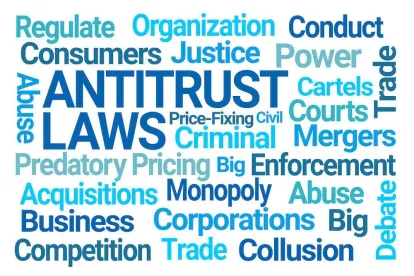China
On Dec. 14, 2020, the State Administration for Market Regulation (SAMR), China’s antitrust regulator, imposed fines against three of the country’s largest technology companies for failing to submit for merger control review acquisitions of smaller companies. The fined companies are Alibaba Investment Limited, China Literature Limited, an affiliate of Tencent, and Shenzhen Hive-box Network Technology, an affiliate of the logistics company SF Express.
Based on information released by SAMR, the penalized transactions all involved variable interest entity (VIE) structures, which are frequently used to facilitate foreign financing of Chinese businesses in industries where foreign equity is legally prohibited or restricted under the Chinese foreign investment regime. Under the VIE structure, a foreign “parent” company does not actually own any shares in its Chinese subsidiary, but rather controls the subsidiary through a series of contractual arrangements. In the past, there existed significant uncertainty as to whether businesses utilizing the VIE structure were required to undergo merger control review given the ambiguities involved with respect to the structure’s legality and the lack of regulatory guidance. In April 2020, however, the SAMR announced its acceptance of a merger control filing in relation to a different proposed joint venture, representing the first time a filing had been accepted by the Chinese regulator involving a VIE-structured entity. The SAMR also explicitly addressed VIE structures in the recent draft Anti-Monopoly Guide for the Internet Platform Economy Sector, which was released in November 2020.
In addition to the fines, the SAMR recently engaged in a series of regulatory rulemaking and enforcement actions that increasingly signal an intent to enhance regulation in the technology sector. The moves follow a similar pattern of heightened scrutiny of technology companies worldwide, as regulators in the United States and Europe investigate whether companies have violated antitrust laws.
Japan
JFTC conducts a survey and revealed draft guidelines for business collaboration with startups
On Nov. 27, 2020, the Japan Fair Trade Commission (JFTC) revealed the result of a survey investigating the trade practices between start-ups and their investors or funders. The questionnaires were sent to 5593 start-ups selected by the JFTC, and 1447 (approximately 25.9%) answered.
As the result of the survey, the JFTC confirmed that there were actions that could be problems from the perspective of the Antimonopoly Act in (1) transactions and contracts between startups and collaborating businesses (such as unilateral NDAs, license provisions without compensation, and unilateral attributions of intellectual property rights arising from joint development agreements); (2) transactions and contracts between startups and investors (such as a disclosure of trade secrets, breaches of NDAs, and a limitation of research and development); and (3) relationships between startups and competitors (such as competitors’ interference with startups sales activities and purchasing (procurement) activities).
On Dec. 23, 2020, the JFTC revealed draft guidelines for business collaboration with startups and started the Public Comment Procedure.
Follow-up – Prosecution of the major medicine wholesalers
On Dec. 9, 2020, the Special Investigation Department of the Tokyo District Public Prosecutors Office prosecuted three major medicine wholesale companies and seven persons in charge of the companies, who engaged in bid-rigging for pharmaceuticals made by the Japan Community Healthcare Organization (JCHO) in violation of the Antimonopoly Act. According to media reports, four major medicine companies have coordinated the winning bidder in advance and restricted competition, over general competitive bidding for pharmaceuticals made by the JCHO in June 2016 and June 2018. Before the bidding, the four companies gathered in a rented conference room and allocated orders to each company. One of the four major medicine wholesales companies involved reported the violation under the Leniency system that grants a reduction in or an exemption from surcharge payment to an enterprise that voluntarily discloses its own involvement in cartels or bid riggings to the JFTC. Therefore, JFTC didn’t file a complaint against the company that was the first to submit its reports and materials.
Edoardo Gambaro, Yuji Ogiwara, Stephen M. Pepper, Gillian Sproul, Hans Urulus, Dawn (Dan) Zhang, Mari Arakawa, Filip Drgas, Simon Harms, Marta Kownacka, Pietro Missanelli, Anna Rajchert, Jose Abel Rivera-Pedroza, Ippei Suzuki and Rebecca Tracy Rotem also contributed to this article.







 />i
/>i

